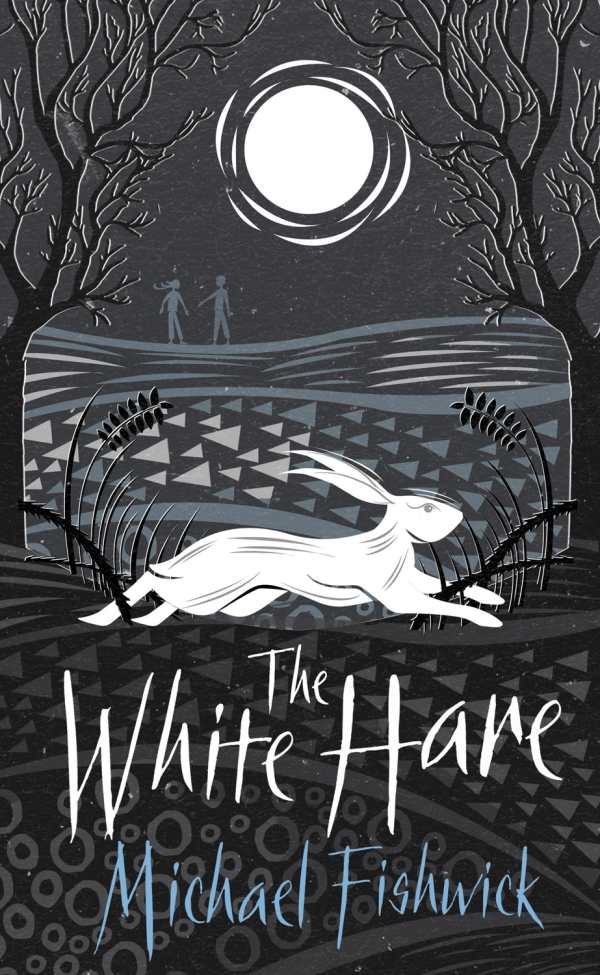The White Hare
In Michael Fishwick’s The White Hare, local legend has it that a woman who dies abandoned by her lover can return in rabbit form to seek revenge. Who this woman might be and who she’s come for is a subject of village debate. Young Robbie, newly arrived, is learning the lore for the first time. However, his only friend, Maggie Carr, knows who the white hare is. And she’s been waiting for her.
After the fire, Robbie remembers “loving the flames, their wildness and their strength.” After all, fire was his anger. But now, everything has changed. He’s moved from London to the countryside. He has a record. His mom is dead. His dad is going native, and his stepmother and stepsisters seem to have one foot out the door. When the white hare shows up, Mags drags him through forest and field and into legend, showing Robbie that change has just begun.
At the heart of the story are Mags, “almost invisible … the clothes she was wearing so weathered and faded that she melted into the landscape and became a part of it”; the white hare, “her body hunched like a question mark”; and Robbie himself, blazing, running, and anxious. Revealed slowly in lovingly rendered scenes, this triumvirate navigate a landscape both internal and external and find themselves in the wildest, oldest, and most dangerous terrains of human experience.
Fishwick wields strangeness rather than certainty, and specificity rather than answers, in this rare offering filled with mystery and emotional depth. A treatise on the brutality of love and the pain it frequently leaves behind, The White Hare looks to the wild places and feral people that grief creates. The beauty of its prose lingers, a grace note amidst the heartbreaking realization that, often, “it’s hard to know how guilty you are.”
Reviewed by
Letitia Montgomery-Rodgers
Disclosure: This article is not an endorsement, but a review. The publisher of this book provided free copies of the book to have their book reviewed by a professional reviewer. No fee was paid by the publisher for this review. Foreword Reviews only recommends books that we love. Foreword Magazine, Inc. is disclosing this in accordance with the Federal Trade Commission’s 16 CFR, Part 255.

